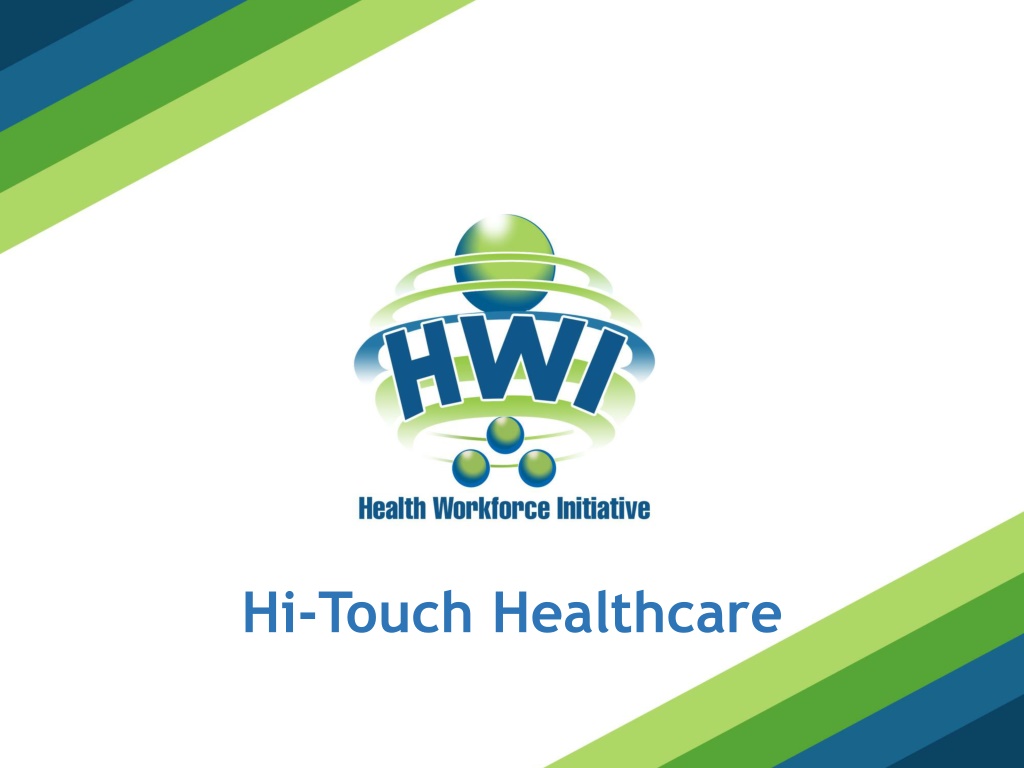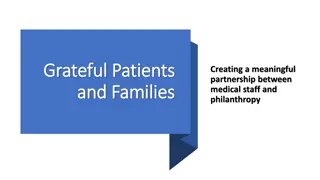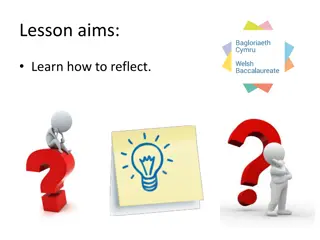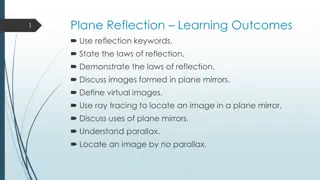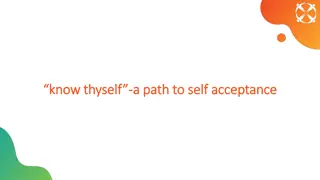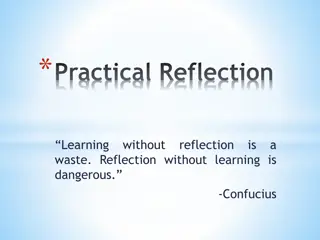Self-Reflection in Healthcare: Importance, Definitions, and Practical Applications
Explore the significance of self-reflection in healthcare, covering its definitions, benefits, and real-life scenarios. Dive into the impact of self-reflection on personal growth, professional development, and patient care, with insights from influential quotes and expert perspectives. Understand how self-reflection empowers healthcare workers to enhance their skills, respond to challenges effectively, and foster a culture of continuous improvement.
Uploaded on Sep 15, 2024 | 0 Views
Download Presentation

Please find below an Image/Link to download the presentation.
The content on the website is provided AS IS for your information and personal use only. It may not be sold, licensed, or shared on other websites without obtaining consent from the author. Download presentation by click this link. If you encounter any issues during the download, it is possible that the publisher has removed the file from their server.
E N D
Presentation Transcript
WHAT TO EXPECT IN THIS PRESENTATION Overview of Self-Reflection Importance of Self-Reflection Personal Self-Reflection in Healthcare Internal and External Factors Self-Reflection Depth Perception Activity What, So What, Now What? Activity
SELF REFLECTION The real man smiles in trouble, gathers strength from distress, and grows brave by reflection. -Thomas Paine http://www.brainyquote.com/quotes/quotes/t/thomaspain386293.html?src=t_reflection
DEFINITIONS OF SELF-REFLECTION An intentional, active progression of learning (John Dewey, Philosopher of Education) Careful thought, especially the process of reconsidering previous actions, events, or decisions (Encarta English Dictionary, 2016) Careful thought about your own behavior and beliefs (Miriam-Webster Dictionary, 2016)
CONFUCIUS SAID By three methods may we learn wisdom: first by reflection, which is the noblest; second by imitation, which is the easiest; and third, by experience, which is the most bitter.
SELF-REFLECTION IN HEALTHCARE Reflection is a way by which one takes personal responsibility for one s actions and then develops strategies for sustainable change. --(Boomer & McCormick, 2010)
THE DAY IN THE LIFE OF A HEALTHCARE WORKER You work as a unit secretary in a large mid-city Trauma Center. A school bus has crashed and 21 children, aged 6-12, have been injured in the accident. 14 of them will be arriving in your department in approximately 20 minutes. This is what you see:
WHAT WENT WRONG? What could the unit secretary have done to better prepare herself for the situation? What should she have done in the situation instead of what she did? Do you think debriefing is important after a situation like this? Why/not? Would self-reflection help? Why/not?
ACTIVITY #1 PERSONAL SELF-REFLECTION
ENVIRONMENTAL SCANNING (LEUNG & RATNAPALAN, 2011) A method by which an individual examines the context of their surrounding or situation, looking at both internal and external factors.
INTERNAL FACTORS Individual knowledge and skill level about the situation Attitude toward the task being performed Does the individual feel s/he has the proper approach to certain situations? Ask yourself Was I being professional? Did I react the way I should have?
EXTERNAL FACTORS How does my knowledge compare to my colleagues? Do I know the latest policy regarding specific situations? Am I familiar with the department I am in?
REFLECT AND DEVELOP AN ACTION PLAN (THORPE & BARSKY, 2001) First, reflect on situations that you experience. Second, develop an awareness of areas for growth. Third, critically analyze the situation. Fourth, develop an action plan.
ACTIVITY #2 SELF-REFLECTION DEPTH PERCEPTION
EMANCIPATORY PRACTICE DEVELOPMENT (FILMALTER & HEYNS, 2015) In order to make sustainable change and positive outcomes, self-reflection involves the development of emancipatory practice. This practice focuses on improving outcomes and self-understanding.
THREE PHASES OF EMANCIPATORY PRACTICE Enlightenment based on reflection, healthcare workers are made aware of changes that need to be made. Empowerment they gain information that enables them to act on the identified changes. Emancipation achieved when employees become empowered and enlightened to take action in order to change practice.
ACTIVITY #3 WHAT? SO WHAT? NOW WHAT?
THANK YOU! Questions? Comments?
